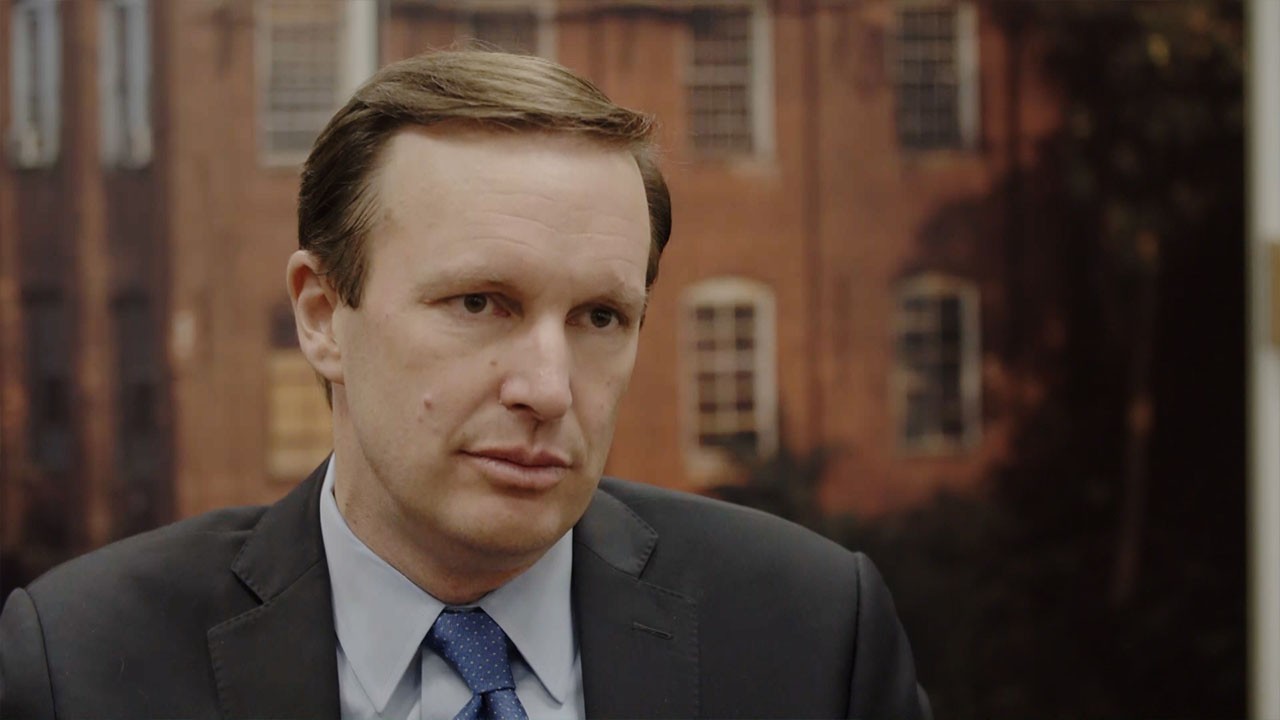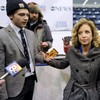Images via Flickr and WIkimedia Commons
One week after a mass shooting at Marjory Stoneman Douglas High School took the lives of 17 Florida students and administrators, one of the school’s students, Cameron Kasky, demanded before a national audience that his home state senator, Republican Marco Rubio, stop accepting donations from the National Rifle Association. While a crowd of thousands cheered Kasky’s plea, Rubio made no such pledge. He instead insisted that the $3 million he has accepted from the NRA over his career has not influenced his thinking on gun control."The positions I hold on these issues of the Second Amendment, I've held since the day I entered office in the city of West Miami as an elected official," Rubio said. "People buy into my agenda, and I do support the Second Amendment.""In the name of 17 people, you cannot ask the NRA to keep their money out of your campaign?" Kasky responded incredulously.“I think in the name of 17 people, I can pledge to you that I will support any law that will prevent a killer like this from getting a gun," Rubio said.
Check out more videos from VICE:
The organization has 27 federal lobbyists working to influence federal legislation, plus a cadre of state lobbyists who wield incredible power over state policy. This influence is especially prevalent in Rubio’s home state of Florida, which has earned the nickname among some as “the Gunshine State.” The state has some of the most lax gun regulations in the country, as well as a series of strong legal protections for gun owners, including the controversial “stand your ground law.” A recent New Yorker investigation of Florida’s gun laws found that one NRA lobbyist, Marion Hammer, has penned 30 gun bills that have become state law.A New York Times tally of the NRA’s top supporters in Congress lays out the whopping investment the group has made in top Republican leaders over the years. The biggest beneficiary of NRA money in the Senate is Arizona Republican John McCain, who has taken in $7.7 million over the course of his career. South Carolina Republican Richard Burr came in second place, with nearly $7 million in NRA donations, followed by Missouri Republican Roy Blunt, who has taken in $4.5 million. The top recipient of NRA money in the House is French Hill, an Arkansas Republican, and the organization invested $30 million in efforts to elect Donald Trump.McCain, Hill and the dozens of other lawmakers who have long received financial and organizational support from the NRA have put forth myriad bills to loosen regulations over firearms, from legislation that would narrow the definition of armor-piercing bullets to efforts to protect gun manufacturers from any legal liability.NRA lobbyists today are working an overwhelming number of bills, many of which would further weaken America’s already anemic gun regulations. A peek at the NRA’s most recent federal lobbying disclosure shows work on dozens of live congressional proposals. This NRA lobbying includes work on the Safe Students Act, which would repeal a federal ban on firearm possession in school zones.Other bills the NRA is focused on would, among other things, increase public access to silencers, grant concealed carry rights to congress members and make switchblades legal. The NRA is also lobbying, most likely in opposition, to various common sense federal gun proposals, including H.R.445, which would direct the Department of Justice to establish a gun buyback program. (Following a mass shooting in 1996, Australia established a highly successful gun buyback program that removed 600,000 firearms from the streets.)
Advertisement
For the record, Rubio was more moderate on the issue of guns during his time as a city councilor. And while he holds an “A+” rating from the NRA, he has recently endorsed a slate of incremental gun control measures, including the enactment of so-called “Red Flag” laws that allow law enforcement to seize firearms from potentially violent officials. Rubio, however, has resisted calls for comprehensive changes, including a live bipartisan proposal in Congress that would increase the minimum age to purchase a semiautomatic rifle from 18 to 21. (A number of school shootings, including Parkland, were carried out by individuals under the age of 21.)Rubio’s willingness to break with the NRA, even nominally, was interpreted as a gutsy move in today’s Washington. The NRA wields incredible power at all levels of government today.NRA lobbyists today are working an overwhelming number of bills, many of which would further weaken America’s already anemic gun regulations.
Advertisement
Check out more videos from VICE:

The organization has 27 federal lobbyists working to influence federal legislation, plus a cadre of state lobbyists who wield incredible power over state policy. This influence is especially prevalent in Rubio’s home state of Florida, which has earned the nickname among some as “the Gunshine State.” The state has some of the most lax gun regulations in the country, as well as a series of strong legal protections for gun owners, including the controversial “stand your ground law.” A recent New Yorker investigation of Florida’s gun laws found that one NRA lobbyist, Marion Hammer, has penned 30 gun bills that have become state law.A New York Times tally of the NRA’s top supporters in Congress lays out the whopping investment the group has made in top Republican leaders over the years. The biggest beneficiary of NRA money in the Senate is Arizona Republican John McCain, who has taken in $7.7 million over the course of his career. South Carolina Republican Richard Burr came in second place, with nearly $7 million in NRA donations, followed by Missouri Republican Roy Blunt, who has taken in $4.5 million. The top recipient of NRA money in the House is French Hill, an Arkansas Republican, and the organization invested $30 million in efforts to elect Donald Trump.
The NRA has also funneled millions of dollars into the coffers of state parties and politicians. A searchable database compiled by the National Institute on Money in State Politics shows significant donations to virtually every state’s Republican party apparatus, plus a number of state and local Democratic organizations.The NRA wields incredible power at all levels of government today.
Advertisement
While top Congressional sources told The Daily Beast last week that the prospect of post-Parkland action is dim, a number of states, from Vermont to Illinois, are poised to pass new reforms. Last week, Florida overcame intense pressure from the NRA to pass a toothy set of gun reforms, including raising the minimum age to purchase a firearm to 21 and beefing up background checks for prospective buyers. The bill also included some provisions championed by conservatives, including new abilities for school administrators to arm staff. (One hour after Florida’s Republican Governor Rick Scott signed the bill, the NRA sued the state, alleging the law violated the second amendment.)Florida’s action suggests that the activism by Parkland high school students has been effective, and further catalyze change on gun policy across America. States are taking action, and federal lawmakers are feeling more pressure to act. On Saturday, the Department of Justice submitted a regulation that would ban bump stocks like the one used in 2017’s deadly Las Vegas shooting. The Parkland students are looking to further nationalize their movement later this month with the “March For Our Lives” in Washington and across the country later this month.Florida’s action suggests that the activism by Parkland high school students has been effective, and further catalyze change on gun policy across America.
